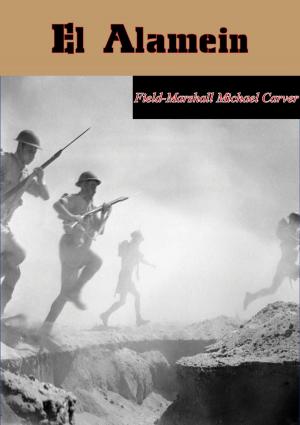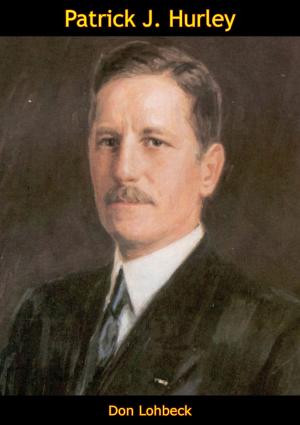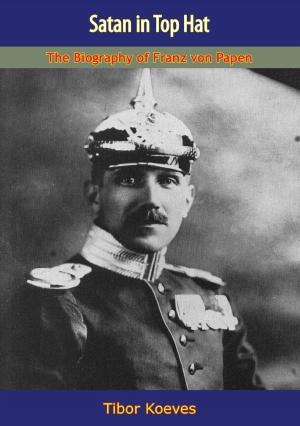The White Kepi
A Casual History of the French Foreign Legion
Nonfiction, History, Germany, European General, Military, United States| Author: | Walter Kanitz | ISBN: | 9781787205765 |
| Publisher: | Arcole Publishing | Publication: | June 28, 2017 |
| Imprint: | Arcole Publishing | Language: | English |
| Author: | Walter Kanitz |
| ISBN: | 9781787205765 |
| Publisher: | Arcole Publishing |
| Publication: | June 28, 2017 |
| Imprint: | Arcole Publishing |
| Language: | English |
Heroic figures galloping across the loose sands of the Sahara, their flowing white kepis a symbol of the highest romance and adventure...or murderers and human derelicts, rejected by society and hunted by the police, seeking escape from prison in the ranks of the Légion Étrangère? Neither picture—so commonly held by the general public—is even partially accurate, writes Walter Kanitz.
During World War II, Walter Kanitz fought with the Foreign Legion in Africa. He has done a vast amount of research and reading about the Legion, and has made every possible effort to check his facts. His book represents the first comprehensive and objective history of the French Foreign Legion since its inception in 1831 by the royal decree of Louis Philippe.
For the better part of its history, the Foreign Legion, remote, fascinating, somewhat sinister, has been shrouded in mystery. It has been called everything from “Desert Carrion” to the “Legion of Beggars.” It was often said that “dogs bark when the Legion passes.” Yet, in battle, the Légionnaires are famed for a courage and heroism that knows no fear of death. They are considered by most professional soldiers to be, as a unit, the best fighting force in the world.
When a new recruit applies for enlistment, he is made to wait 24 hours to reconsider his decision. The ranks are made up of men of all nationalities—Germans, Poles, Czechs, Slavs, Spaniards, Americans. It is the only army in existence today made up of mercenaries who have voluntarily signed to serve five years for the government of France. The discipline is harsh and the pay meager. The call to battle has taken Legion units from Mexico to Norway, from China to Morocco. Outside of battle, life consists of infinite boredom broken only by alcohol and an occasional woman. And yet, says ex-Legionnaire Kanitz, “Qu’importe, quand la Légion passe, que les chiens viennent aboyer après d’elle! Vive la Légion!”
Heroic figures galloping across the loose sands of the Sahara, their flowing white kepis a symbol of the highest romance and adventure...or murderers and human derelicts, rejected by society and hunted by the police, seeking escape from prison in the ranks of the Légion Étrangère? Neither picture—so commonly held by the general public—is even partially accurate, writes Walter Kanitz.
During World War II, Walter Kanitz fought with the Foreign Legion in Africa. He has done a vast amount of research and reading about the Legion, and has made every possible effort to check his facts. His book represents the first comprehensive and objective history of the French Foreign Legion since its inception in 1831 by the royal decree of Louis Philippe.
For the better part of its history, the Foreign Legion, remote, fascinating, somewhat sinister, has been shrouded in mystery. It has been called everything from “Desert Carrion” to the “Legion of Beggars.” It was often said that “dogs bark when the Legion passes.” Yet, in battle, the Légionnaires are famed for a courage and heroism that knows no fear of death. They are considered by most professional soldiers to be, as a unit, the best fighting force in the world.
When a new recruit applies for enlistment, he is made to wait 24 hours to reconsider his decision. The ranks are made up of men of all nationalities—Germans, Poles, Czechs, Slavs, Spaniards, Americans. It is the only army in existence today made up of mercenaries who have voluntarily signed to serve five years for the government of France. The discipline is harsh and the pay meager. The call to battle has taken Legion units from Mexico to Norway, from China to Morocco. Outside of battle, life consists of infinite boredom broken only by alcohol and an occasional woman. And yet, says ex-Legionnaire Kanitz, “Qu’importe, quand la Légion passe, que les chiens viennent aboyer après d’elle! Vive la Légion!”















